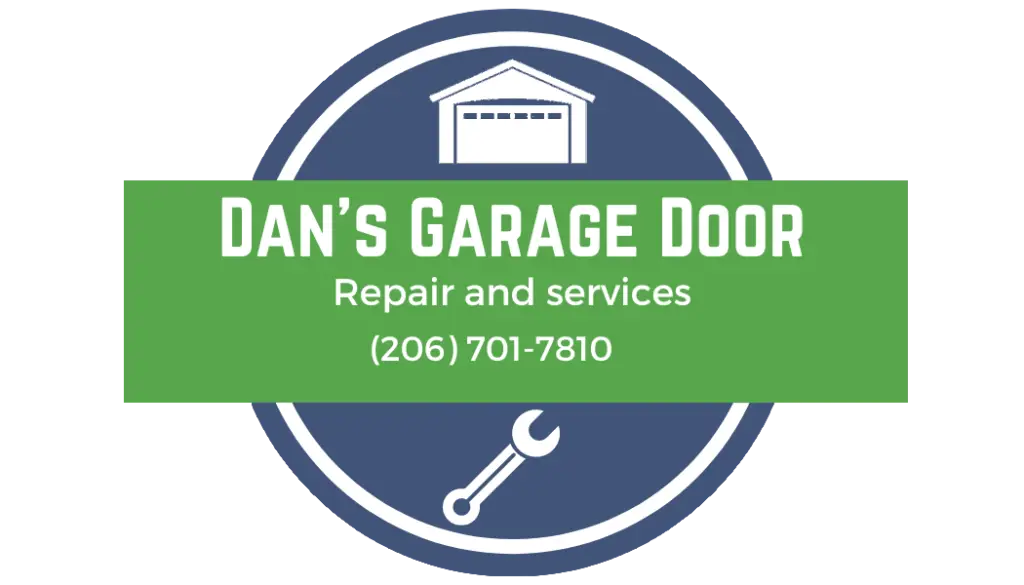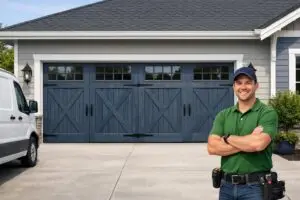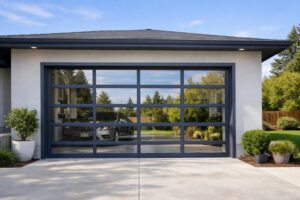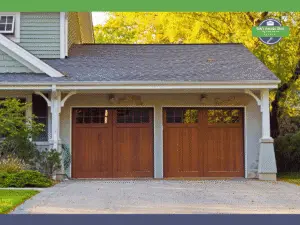Your garage door might look simple from the outside, but behind that smooth opening and closing are tightly wound springs carrying a huge amount of tension. Many Seattle homeowners consider tackling garage door spring repairs on their own, but doing so can lead to serious accidents and costly mistakes. Understanding why these repairs are best left to trained experts can protect both your home and your safety.
Quick Summary
- Garage door springs (torsion and extension) are under high tension and provide most of the lifting force, so a worn or broken spring can make the door unsafe or impossible to open.
- DIY spring repairs can cause serious injuries when a spring snaps or recoils, including deep cuts, broken bones, and head or eye injuries.
- Common DIY mistakes include using the wrong spring, failing to balance or align the door, and using improper tools like pliers or screwdrivers that can slip under pressure.
- Basic safety steps include disconnecting opener power, keeping kids and pets away, wearing goggles/gloves/closed-toe shoes, and limiting DIY work to visual checks and minor troubleshooting.
- Professionals have specialized training and tools to diagnose issues, repair safely, and reduce long-term costs by preventing additional damage and repeat failures.
Understanding Garage Door Components
Before diving into the dangers of DIY repairs, it helps to know what makes up a garage door system. Springs, cables, rollers, and tracks all work together to lift and lower the heavy door. Each part plays a specific role, and if one fails, the entire system can be compromised.
Types of Garage Door Springs
There are two main types of springs found in garage doors: torsion springs and extension springs. Torsion springs sit above the door and twist to create tension, while extension springs stretch and contract along the sides of the tracks. Both types are under high pressure and can cause injuries if handled incorrectly.
How Springs Function
Garage door springs are designed to counterbalance the heavy weight of the door. When you press the opener, the motor doesn’t do all the work—the springs provide most of the lifting force. This is why a broken or worn spring makes the door difficult, or even impossible, to open safely.
Other Key Garage Door Components
Springs aren’t the only crucial parts of a garage system. Other components include:
- Cables – help support the weight and keep the door balanced.
- Rollers – allow the door to glide smoothly along the track.
- Tracks – guide the door up and down in a controlled motion.
- Garage door opener – powers the lifting mechanism with the help of the springs.
If one of these pieces wears out or fails, it can put extra strain on the springs, leading to dangerous situations.
The Risks of DIY Spring Repairs
Trying to repair springs without professional training exposes you to multiple risks. Springs are tightly wound and can snap suddenly, releasing enough force to cause severe injuries or property damage. Beyond safety, DIY repairs can also void warranties or create larger repair bills if mistakes are made.
Potential Injuries
Garage door spring accidents are more common than many people realize. A spring under tension can whip loose with enough force to cause:
- Deep cuts or lacerations
- Broken fingers, wrists, or arms
- Severe bruising from the recoil
- Head or eye injuries if struck unexpectedly
For Seattle homeowners, the risk of serious injury is far greater than the money saved by attempting a DIY fix.
Common Mistakes in DIY Repairs
Without the right knowledge, homeowners often make costly errors such as using the wrong replacement spring, failing to balance the door, or skipping alignment steps. Even a small mistake can throw off the system, leading to further breakdowns or unsafe operation.
The Importance of Proper Tools
Professional garage door technicians use specialized winding bars, clamps, and safety equipment designed specifically for handling springs. Attempting the repair with household tools like pliers or screwdrivers is extremely risky, since they can slip or break under the pressure.
Injury Prevention Strategies
While the safest option is to call a professional, some homeowners may still be tempted to handle minor garage door troubleshooting on their own. Taking proper precautions greatly reduces the risk of accidents, even for basic maintenance. Knowing what to look for and how to prepare is key to avoiding dangerous mistakes.
Safety Gear to Wear
If you’re working near garage door components, always wear protective equipment. This includes safety goggles to shield your eyes, heavy-duty gloves to protect your hands, and closed-toe shoes to prevent foot injuries if a tool or part falls.
Precautions Before Starting
Before touching the system, disconnect power to the garage door opener. Keep children and pets away from the work area, and never attempt to release or adjust the springs without professional tools. These simple steps can prevent many common accidents.
Identifying Signs of Wear
Knowing when a spring is close to failure helps you take action before it becomes a hazard. Warning signs include:
- A loud snap or bang from the garage area
- The door opening unevenly or not staying in place
- Visible gaps in the spring coils
- Excessive squeaking or grinding noises
Spotting these issues early is the best way to schedule repairs before the problem escalates.
The Role of Garage Door Professionals
Professional garage door technicians bring knowledge, tools, and experience that go far beyond what most homeowners have. In Seattle, where weather and frequent use put extra stress on garage door systems, relying on trained experts ensures both safety and reliability.
Expertise and Training
Garage door professionals go through specialized training to handle springs and other high-tension parts safely. They understand the mechanics of different door types, know how to identify hidden issues, and follow industry safety standards during every repair.
Benefits of Hiring Professionals
Hiring experts comes with major advantages:
- Accurate diagnosis of problems
- Faster, more efficient repairs
- Use of professional-grade tools
- Reduced risk of injury or damage
- Warranties and service guarantees
These benefits give homeowners peace of mind that the job is done right the first time.
Cost Considerations
While professional repairs may seem expensive upfront, they often save money in the long run. DIY mistakes can lead to additional damage or repeat repairs, while a trained technician ensures lasting results. Plus, many garage door companies in Seattle offer maintenance plans to help homeowners budget for routine service.
Garage Door Troubleshooting Tips
Springs aren’t the only part of your garage door that can cause problems. Many issues stem from other components, and knowing how to spot them can save you stress and time. Safe troubleshooting focuses on identifying symptoms without putting yourself at risk.
Common Issues Beyond Springs
Some of the most common garage door problems include:
- Misaligned or bent tracks
- Worn-out rollers causing noisy operation
- Broken or frayed cables
- Malfunctioning openers or remotes
- Photo-eye sensors blocked by dirt or misalignment
These issues may not be as dangerous as broken springs, but they can still prevent your door from working correctly.
Diagnosing Problems Safely
Homeowners should always start with simple visual checks—look for obvious wear, loose hardware, or obstructions. Listen for unusual sounds and test the balance of the door by gently lifting it halfway. If the door feels heavy or uneven, stop and call a professional. Avoid tampering with springs, cables, or opener wiring unless you’re trained.
When to Seek Help
If troubleshooting points to a spring, cable, or motor issue, it’s best to contact a professional. These repairs require specialized knowledge and tools. Calling an expert early can prevent the problem from escalating and ensure your garage door remains safe to use.
Conclusion: Prioritize Safety Over Cost
DIY garage door spring repairs may seem like a way to save money, but the risks far outweigh the benefits. From severe injuries to costly mistakes, the dangers are real and often underestimated. Seattle homeowners can protect their families and their property by choosing professional garage door services instead of taking unnecessary risks. Prioritizing safety over cost ensures your garage door runs smoothly—and keeps everyone safe.






